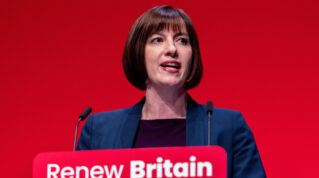Teachers will get a 4 per cent pay rise next year after the government accepted the review body’s recommendation, with additional funding of £615 million coming to schools.
However, government has said schools will still have to fund around a quarter of the rise themselves – which equates to finding £400 million from their own budgets. This comes on top of savings they have already budgeted for.
Education secretary Bridget Phillipson said the pay award “backed by major investment” recognises the “crucial role teachers play in breaking the link between background and success”.
But unions said they were still concerned about whether schools could afford to make more savings.
4% rise for teachers
In its evidence to the School Teachers’ Review Body last year, the government said a 2.8 per cent pay rise from September 2025 would be “appropriate”.
But this has been bumped up today after the School Teachers’ Review Body recommended pay should rise 4 per cent.
The STRB said a 2.8 per cent pay rise “risked undermining improved supply, including the additional 6,500 teachers the government has committed to recruiting”.
Last year, the government said schools could afford 1.3 percentage points of the proposed 2.8 per cent pay rise by using £400 million of “headroom” in their budgets.
Schools were facing finding the remaining 1.5 percentage points by making budget savings of around £525 million.
Now, the government is saying that the £400 million of “headroom” in budgets, plus the £615 million of extra funding, will allow schools to fund 3 percentage points of the 4 per cent rise.
That will leave schools having to find savings of more than £350 million to cover the teacher pay rise.
Including the 3.2 per cent pay rises for support staff, the Institute for Fiscal Studies estimates school will need to find savings of £400 million.
Schools to ‘do their bit’ on savings
In a written statement to Parliament, Phillipson said she is “asking schools and colleges to do their part in ensuring that we are driving productivity across all areas of the public sector”.
Schools “will be expected to find approximately the first 1 per cent of pay awards through improved productivity and smarter spending to make every pound count.
“There will be those who say this cannot be done, but I believe schools have a responsibility, like the rest of the public sector, to ensure that their funding is spent as efficiently as possible.”
According to Phillipson, starting salaries outside London will rise to £33,000, and average salaries to over £51,000 from September.
But Luke Sibieta, from the IfS, said “given the pay offer is only just above inflation, the real-terms cuts to most teacher salaries since 2010 still remain in place”.
Teacher salaries will be about 8 per cent lower in real-times than in 2010, he added.
NEU threatens dispute
Daniel Kebede, general secretary of the National Education Union, said as the “pay award is not fully funded”, it would mean “cuts in service provision to children and young people, job losses, and additional workloads for an already overstretched profession”.

He added that “unless the government commit to fully funding the pay rise then it is likely that the NEU will register a dispute with the government on the issue of funding”.
Paul Whiteman, general secretary of the NAHT leaders’ union, said heads were “rightly concerned about the affordability of this year’s pay uplift”.
Government said it will “support leaders to get best value from their funding” including offering schools “a suite of productivity initiatives to help them slash the costs on things like energy, banking and recruitment so every penny is invested on delivering opportunities for young people”.
But Pepe Di’Iasio, general secretary of the ASCL leaders’ union, added “if the government really thinks it will be possible to bridge this funding gap through ‘improved productivity and smarter spending’ then it is mistaken. Schools have already spent many years cutting costs to the bone and beyond.”
Changes to TLRs and flexible working encouraged
Phillipson has also announced plans to change the rules on teaching and learning responsibility (TLR) payments so that for part-time staff, they must be based on the proportion of responsibility undertaken, rather than pro-rated based on contracted hours.
The payments are made by schools for additional leadership and management responsibilities undertaken by classroom teachers.
The current school teachers’ pay and conditions document states that, where TLRs are awarded to part-time teachers “they must be paid pro rata at the same proportion as the teacher’s part-time contract”.
Phillipson said this would change for all schools from 2026, and schools have the “option of implementing this change from September 2025”.
She added that teachers’ pay and conditions would also be “updated to reference that employers should aim to support flexible working requests where operationally feasible”.
Support staff ‘demand parity with teachers’
Today’s announcement has also prompted a row over support staff pay. Support staff have been offered a pay rise of 3.2 per cent by their employers.
Stacey Booth, national officer at the GMB, said: “School support staff are the forgotten army who look after our children, feed them and nurture them.
“They are shockingly badly paid and it’s a scandal this pay award means they will fall even further behind teachers. Our members demand parity with teachers.”
















I am confused over the assumption that there’s headroom in schools budgets. I’m only aware of deficit budgets